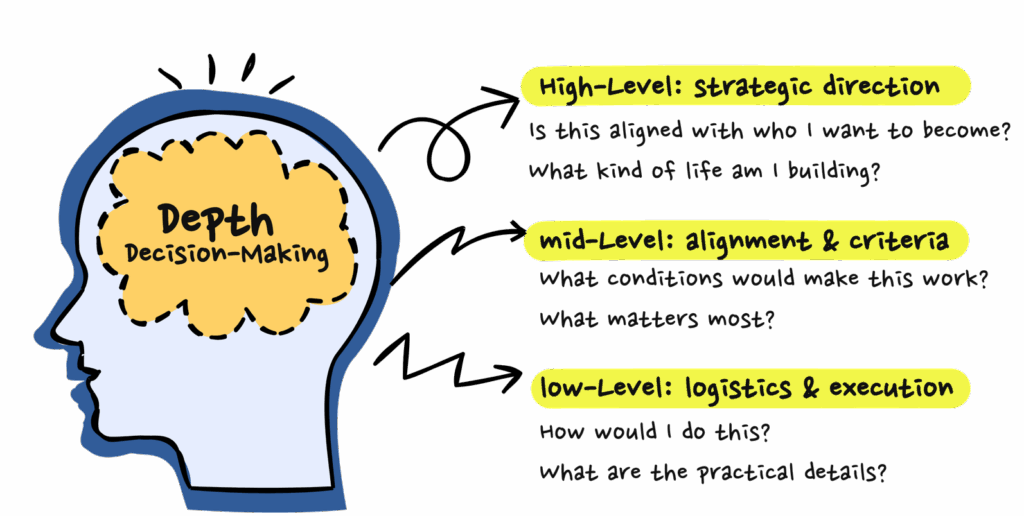One of the hardest parts of decision-making for gifted adults isn’t lack of options — it’s too many.
We see possibilities. We see pitfalls. We see all the paths — and all the problems on those paths. Our minds race ahead to solve every obstacle before we’ve even chosen a direction.
And in that flood of problem-solving, something dangerous happens:
We stay busy working through low-level details — which keeps us from fully committing to the bigger decision that actually matters.
Should I move across the country?
→ What would the schools be like?
→ What would I do if the market shifts?
→ How would I get my dog there?
All valid questions.
But notice: you haven’t actually decided if moving across the country is the right move for your life. You’re solving logistics before choosing a direction.
This is where Depth Decision-Making comes in.

When we sort decisions into levels, we can see more clearly where we actually are:
High-Level: Strategic Direction
Is this aligned with who I want to become? What kind of life am I building?
- Should I start my own business?
- Do I want to pursue this relationship?
- Is this career path aligned with my values?
Mid-Level: Alignment & Criteria
What conditions would make this work? What matters most?
- Does this role allow for creative expression?
- Will this decision support my long-term financial security?
- Are my core needs (purpose, belonging, autonomy) being met?
Low-Level: Logistics & Execution
How would I do this? What are the practical details?
- How would I fund the move?
- Which CRM would I use for the business?
- What’s my daily schedule going to look like?
The trap?
Gifted adults often have the capacity to instantly see 17 low-level problems with every high-level idea. And because problem-solving feels productive, we start fixing details before deciding the bigger question.
Here’s your gentle reminder:
👉 High-level clarity must come first.
You’re allowed to not know how everything will work. You only need to know:
Is this the direction I want to head?
When you practice Depth Decision-Making, you slow your mind’s instinct to over-engineer and give yourself permission to make meaningful decisions with intentionality.
The rest — you’ll figure out.






